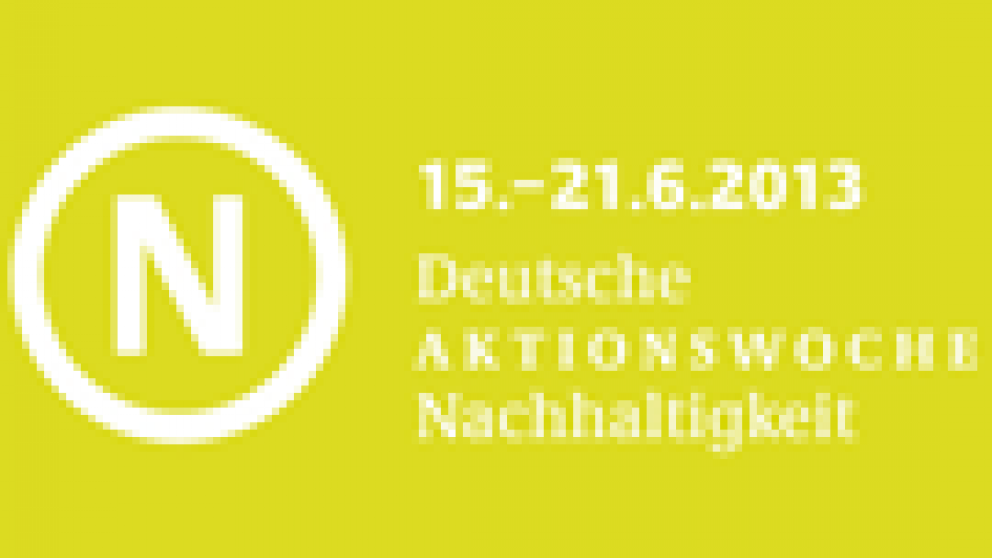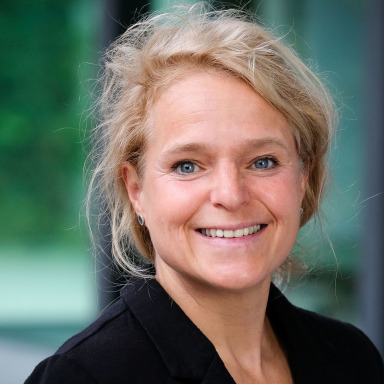Headline:
IASS Potsdam participates in German Sustainability Action Week

From June 15-21, 2013, the Council for Sustainable Development invites to the “German Sustainability Action Week” to make the nationwide commitment to sustainability publicly visible. More than 130 institutions have already signed up to show the different facets of the topic. The IASS participates with a lecture and discussion series during the action week:
June 18, 2013: 7pm – 8.30pm
Panel discussion „Energy transition on site – Opportunities and Challenges for Potsdam and Brandenburg”
The energy transition (Energiewende) offers great opportunities, however, also requires far-reaching political, social and technological changes. For a successful design, the energy transition has to be implemented at all levels of society. Since the local and regional perspective of the transition is in the focus of the discussion, the citizens of Potsdam will have the opportunity to talk to high-ranking representatives from industry, science and politics. Topics such as the regional value in Potsdam and Brandenburg, the current electricity price debate as well as the distribution issues in the promotion of renewable energies will be the centre of the discussion.
Presented by:
- Dr. Dominik Schäuble
Participants:
- Prof. Dr. Dr. Klaus Töpfer, Executive Director of the IASS Potsdam and Head of the research cluster “Global Contract for Sustainability”
- Jann Jakobs, Mayor of Potsdam
- State secretary Henning Heidemann, Ministerium für Wirtschaft und Europaangelegenheiten des Landes Brandenburg
- Dr. Rolf Strittmatter, CEO Zukunftsagentur Brandenburg
- Wilfried Böhme, CEO Stadtwerke Potsdam GmbH
June 19, 2013: 7pm – 8.30pm
Big impacts, high risks: Further steps to curb climate change?
In order to stop the rise of global average temperatures, or at least to slow them down, further methods are increasingly discussed in addition to the reduction of CO2 emissions. At least half of the global warming is due to climate forcing pollutants such as soot, methane and ozone – without their reduction the 2°C target cannot be met. In addition, there is a variety of proposals for targeted, technical intervention in the climate system – so called “climate engineering” or “geoengineering” methods. However: Can these methods work or do they trigger only new problems? What risks do they include, what opportunities?
Lecturer:
- PD Dr. Mark Lawrence, Scientific Director of the IASS Potsdam and Head of the research cluster „Sustainable Interactions with the Atmosphere“
June 20, 20137pm – 8.30pm
My sneaker is made of CO2? From climate killer to resource
The avoidance of carbon dioxide emissions is a priority objective of international environmental policy. CO2 is perceived as waste and pollution. De facto, the carbon in CO2 is also a raw material for many chemical products. In recent years, several research projects have achieved major breakthroughs in using CO2. These so-called CCU technologies (Carbon Capture and Utilization) thus provide an alternative perspective on carbon dioxide. The IASS project “CO2 as an asset (CCU) – potentials & challenges for society” explores the potential of CCU technologies interdisciplinary from an economic and environmental perspective and also examines communicative aspects.
Lecturers:
- Dr. Thomas Bruhn
- Ana M. Lorente Lafuente
- Dr. Barbara Olfe-Kräutlein
The lecturers are scientific assistants of the project team „CO2 as an asset (CCU) – potentials & challenges for society“ at the IASS Potsdam.
The German Sustainability Action Week is taking place in the anniversary year of the term formative publication of Hans Carl von Carlowitz, the forefather of the concept of sustainability in Germany. 300 years ago – in 1713 – von Carlowitz published his work about the sustainable management of forest population. With great foresight, he pointed out that only as many trees should be cut down as can grow again. Otherwise the inventory and thus the future would be jeopardized.

